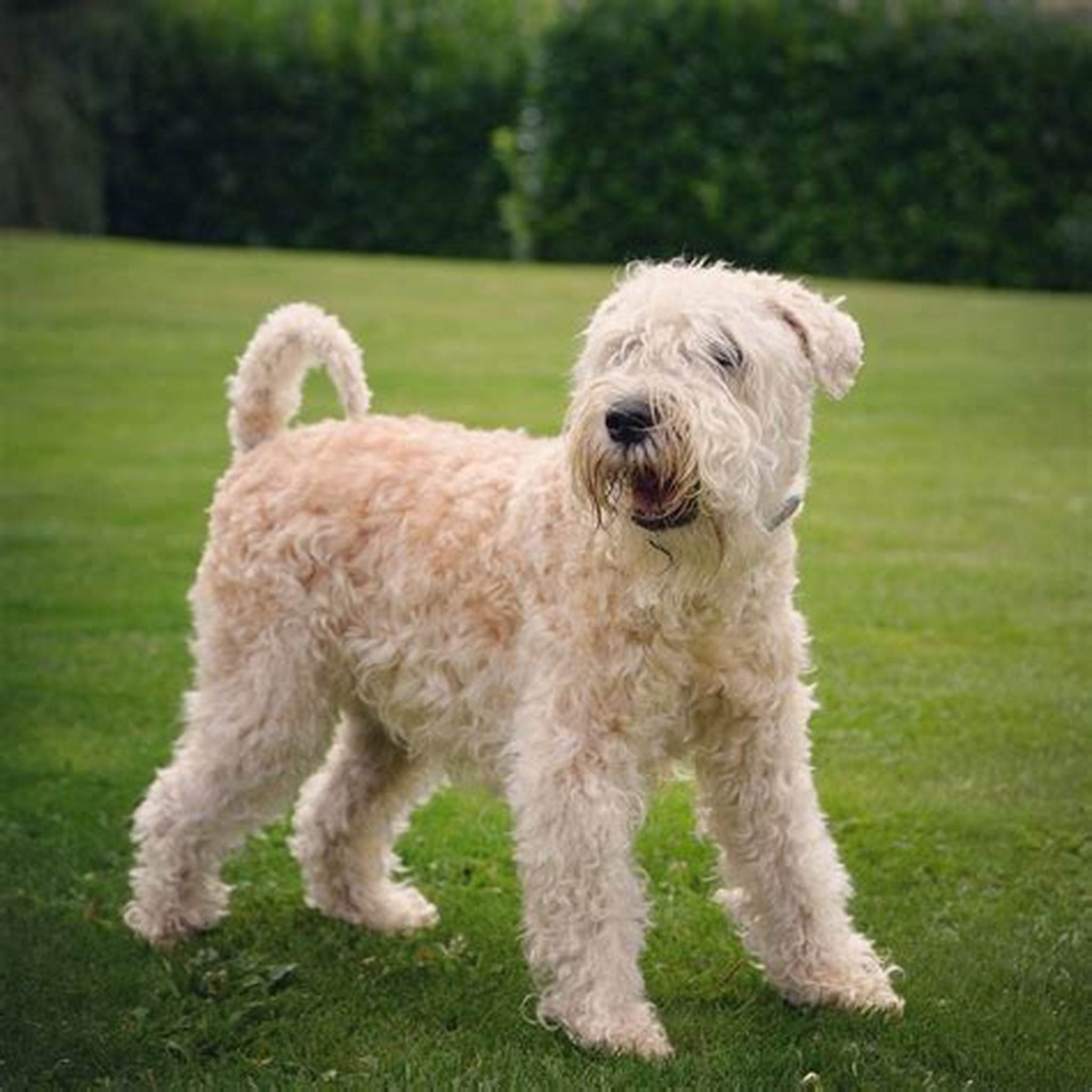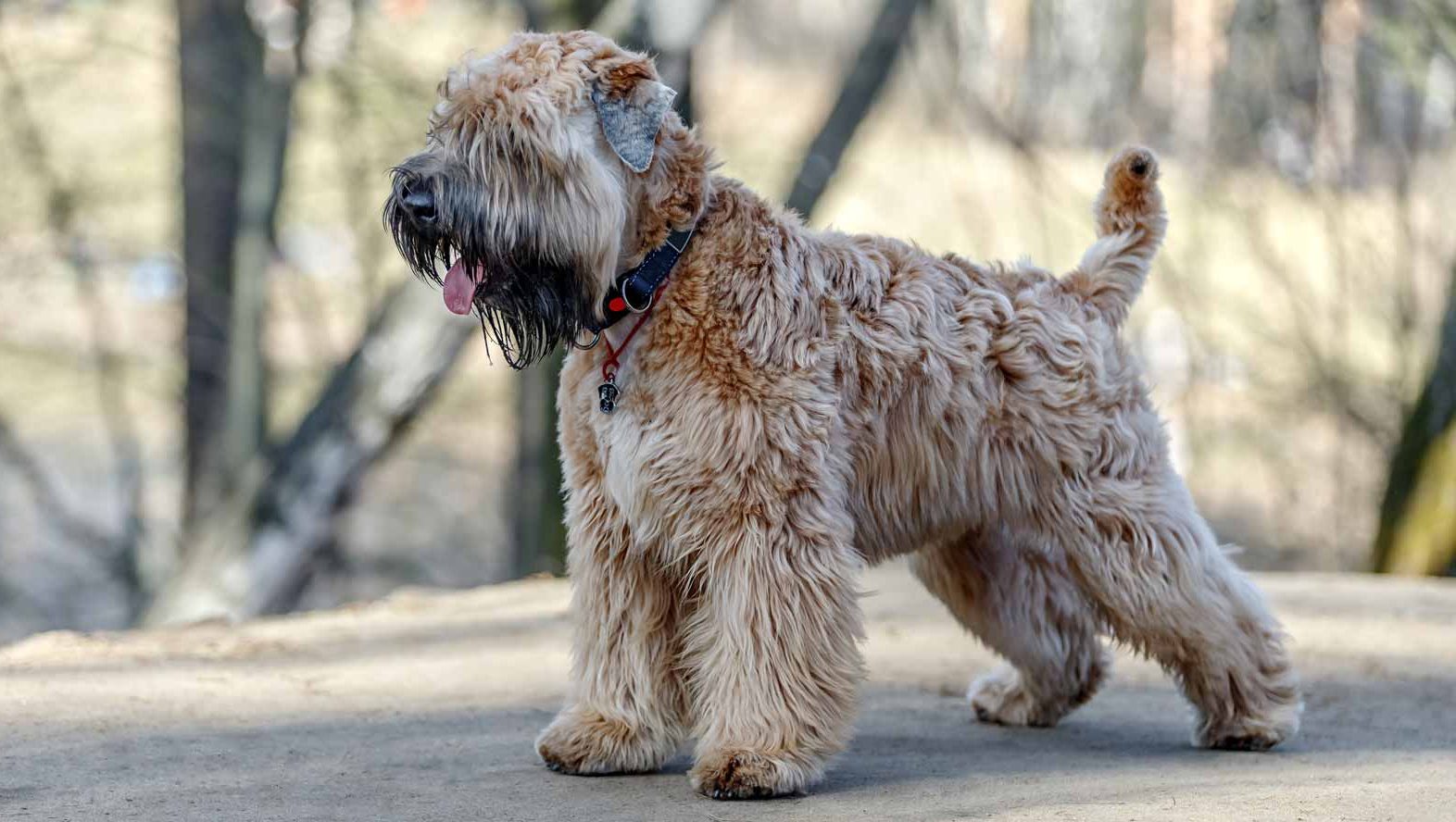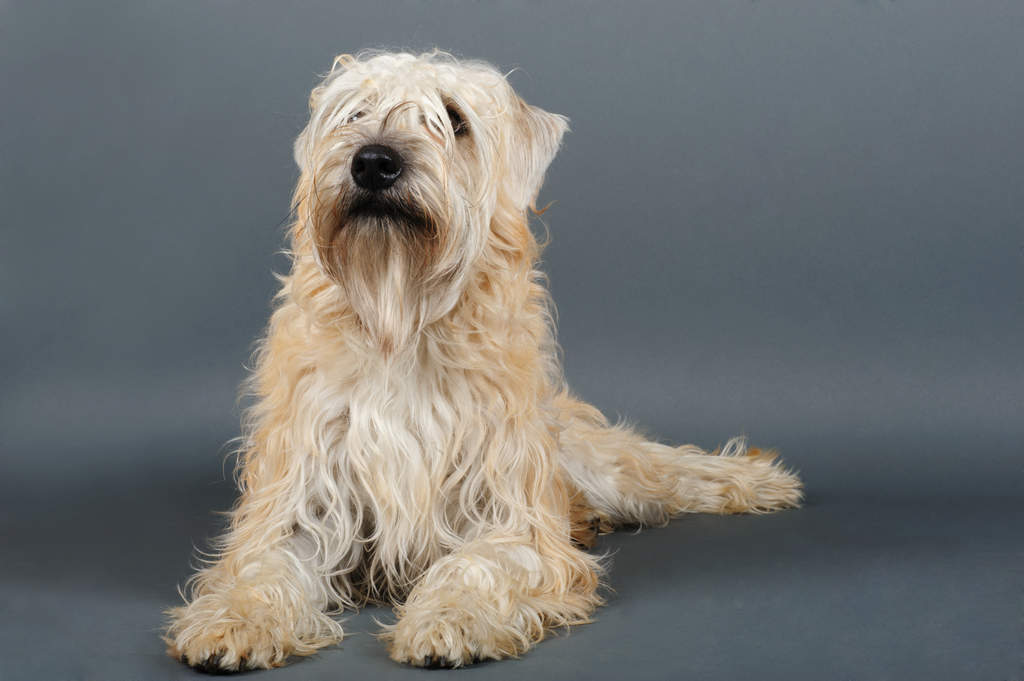
The Soft Coated Wheaten Terrier is an old Irish breed that was developed as an all-purpose farm dog. Dating back over 200 years, Wheatens were bred to guard homes, herd livestock, hunt vermin, and serve as loyal companions. They were a favorite among farmers who needed a versatile dog but couldn’t afford the more “noble” breeds.
Though its roots are shared with the Kerry Blue and Irish Terrier, the Soft Coated Wheaten wasn't recognized by the Irish Kennel Club until 1937. It gained recognition in the United States in the 1970s and has since become a beloved pet thanks to its charm, allergy-friendly coat, and lively spirit.
The Wheaten has grown steadily in popularity, especially among families looking for a medium-sized, friendly companion with lower-allergen potential. In North America and Europe, it's now a familiar face in both show rings and homes, particularly valued for its blend of terrier independence and family-friendly disposition.
Its cheerful nature and soft, flowing coat make it a standout among terriers.
This breed has a distinctive silky coat and a well-balanced, athletic build.
• Height: 17–19 inches (43–48 cm)
• Weight: 30–40 pounds (14–18 kg)
• Build: Medium-sized, strong, and slightly square in outline
• Coat: Single-layer, soft, and silky; falls in gentle waves
• Color: Wheaten (light to golden beige); puppies are born darker and lighten with age
• Head: Rectangular with a strong muzzle and well-defined stop
• Eyes: Medium-sized, dark, and almond-shaped
• Ears: Small to medium, dropped, and carried close to the cheeks
• Tail: Typically docked in some countries; carried gaily
The coat’s unique texture gives the breed a soft, elegant appearance, requiring regular grooming.
Wheatens are known for their playful, affectionate, and confident personalities.
• Friendly: Excellent with children and sociable with people and other dogs.
• Energetic: Needs daily activity and stimulation to stay happy and healthy.
• Alert: A good watchdog, but not typically aggressive.
• Intelligent: Learns quickly but can have a stubborn terrier streak.
• Affectionate: Very people-oriented and enjoys being part of family life.
Their signature “Wheaten greeting” — joyful jumping and face licking — is both endearing and exuberant.

The Wheaten is ideal for:
• Families looking for an affectionate and energetic medium-sized dog
• Allergy-sensitive households seeking a lower-shedding companion
• Owners who want a playful but adaptable house dog
• Those who enjoy regular grooming and coat maintenance
However, it may not be ideal for:
• People who prefer a low-maintenance coat
• Owners unable to commit to daily interaction and training
• Homes unprepared for a bouncy, exuberant greeting style
Wheatens thrive in engaged, active homes that provide structure, play, and grooming.
• Exercise: Moderate to high; needs daily walks, play, and mental stimulation
• Training: Positive reinforcement works well; early socialization is key
• Grooming: Requires brushing several times a week and professional grooming every 6–8 weeks
• Living Environment: Adapts well to apartments or homes with yards
• Feeding: High-quality diet suited for medium, energetic breeds
Routine grooming is essential to avoid matting and maintain coat health.
The Soft Coated Wheaten Terrier is generally healthy, but potential concerns include:
• Protein-losing enteropathy and nephropathy (digestive and kidney conditions)
• Addison’s disease
• Renal dysplasia
• Hip dysplasia
With proper care, Wheatens typically live 12 to 15 years. Responsible breeders perform health screenings for common hereditary conditions.

• Labradoodle: Both are low-shedding, friendly, and family-oriented; Labradoodles are often larger and more energetic.
• Kerry Blue Terrier: Similar Irish origins but with a curly, darker coat and stronger guarding instincts.
• Standard Poodle: Also hypoallergenic and intelligent; Poodles are more obedient, while Wheatens are more playful and independent.
If you want a loving, energetic, and engaging dog with a soft coat and a sunny disposition, the Soft Coated Wheaten Terrier may be the ideal choice. They offer companionship, charm, and plenty of fun, provided you’re ready for regular grooming and terrier-level energy.
Prospective owners should be ready for a joyful, expressive dog that thrives on human interaction.
Choose a breeder who tests for genetic conditions such as PLE/PLN and hip dysplasia. Wheatens are also available through dedicated rescue organizations, especially for families familiar with the breed.
United Pet Club supports owners with grooming guides, health care resources, and microchip registration tailored to medium breeds like the Wheaten.